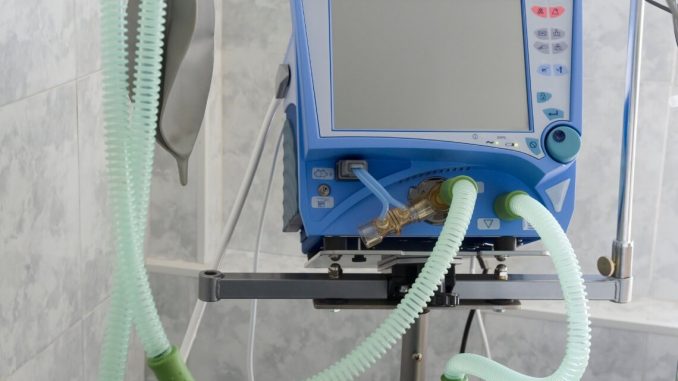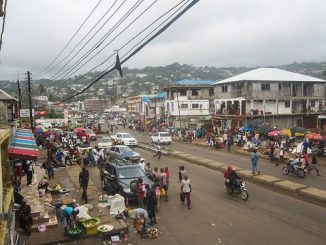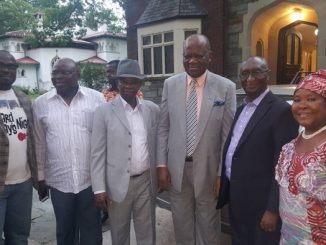
By Dr. Asad Naveed01039
The novel coronavirus (COVID-19) continues to wreak havoc around the globe. Africa was initially thought to be a safe zone for the disease, but now has 14 countries infected.
Even though Sierra Leone is yet to detect a COVID-19 case. The country only has one ventilator, a device required to treat critically ill patients with shortness of breath or respiratory failure due to COVID-19 pneumonia.
All neighboring countries around Sierra Leone have reported new coronavirus cases and if the disease was to spread in Sierra Leone, the country will have limited capacity to treat critically ill patients.
According to a WHO report, based on a study sample of 55,924 COVID-19 confirmed cases in China, 6.1% patients became critically ill and developed symptoms such as respiratory failure, septic shock, and/or multiple organ failure.
This means that, approximately for every 100 people infected with coronavirus, 6 people will need a ventilator to support their breathing.
The only ventilator available in Sierra Leone is at a private hospital named Choitram Memorial Hospital. (Independently verified)
Another private facility – Aspen Medical- has two portable ventilators but these are only used for patients who are guaranteed to get off from them after 48-72 hours or someone who is being evacuated. Hence, they won’t be very useful for COVID-19 patients who require long-term ventilation. (Independently verified)
There are 17 government civilian hospitals in Sierra Leone but none of them has a ventilator in their ICUs. Ventilators used during surgery were not counted as COVID-19 patients would require continuous long term use of ventilators.
Coronavirus manifests itself with symptoms such as dry cough, sore throat, fever, fatigue, and runny nose. In extreme cases, it leads to shortness of breath.
The disease has a high survival rate among the young but can be fatal in elderly and immunocompromised people.
Italy – a country with a much stronger health system- faced a sharp rise in cases this week. There are now 17,660 reported cases, and doctors are no longer able to provide ventilation support for all patients needing them.
A ventilator is a machine which provides mechanical ventilation and delivers breaths to a patient who is physically unable to breathe. The average cost of a ventilator is $6,182. Sierra Leone’s annual health budget for 2020 is 12% of the GDP but purchasing ventilators have never been prioritized.
As a junior doctor in Sierra Leone, we always had to scramble around when treating patients with breathing difficulties. At the Ola During Children’s Hospital, the best treatment we had were oxygen concentrators and a few makeshift CPAP (Continuous Airway Pressure) devices. These are supportive but inadequate to care for patients undergoing respiratory failure.
Even the oxygen concentrators were few in number and one machine was used to support multiple patients at times. Connaught Hospital, also faces a significant shortage of oxygen concentrators. The King’s Sierra Leone Partnership helped in installing an oxygen house/ tank at Connaught but its supply limit stops at the ICU. Oxygen can be transferred to other wards in oxygen cylinders but there aren’t many cylinders.
Dr. Eva Hanciles, a leading Sierra Leonean Anesthesiologist and head of the Connaught ICU suggests that the country should ramp up production of oxygen and storage capacity. She also noted the need for more supplies of oxygen consumables such as venturi masks, tubing, nasal prongs and pulse oximeters.
A graph showing the population percentage distribution (2017)
Sierra Leone already has one of the weakest health systems in the world with an average life expectancy of 51.84 years. Only 7.46% of the population is 55 years or older. This is a vulnerable population.
Sierra Leone has a tropical warm climate which may have helped in preventing the spread of coronavirus. However, according to a Harvard epidemiologist, warmer, wetter weathers are not enough to limit containment of the disease. He suggests that best policy to eradicate the disease would be isolation of cases, quarantining their contacts, a measure of “social distancing,” among other intensive efforts.
It is highly recommended that the country invests significantly in testing, radical contact tracing, border control and health communication. It is also high-time the country starts to invest in sophisticated medical equipment such as ventilators and dialysis machines.
As Sierra Leone has limited capacity to treat critically ill COVID-19 cases, the country must do all it can to prevent infections from moving into the country



